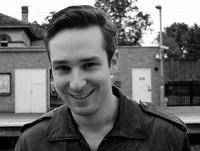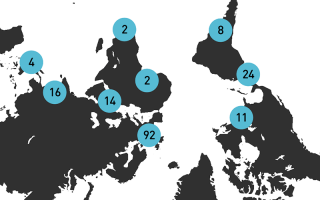Charles recounts experiences of studying MSc Environment and Sustainable Development at the Development Planning Unit

I am half Irish, half Swiss but grew up in Hong Kong. Initially my interest lay in biochemistry, but I changed my mind after the first year of my undergraduate degree at the University of Zürich.
I proceeded to change course entirely and do a Bachelor’s degree in Comparative Politics at the University of Bergen (UiB), Norway, teaching myself Norwegian in the process. My last semester at UiB saw me simultaneously working full time with the city government of Bergen – coordinating and writing their application to join the UNESCO Creative Cities Network of Gastronomy.
Upon completion of my undergrad in 2013 I moved to Oslo. I had always had a keen interest in environmental issues, and my job there gave me enough free time to pursue this interest, which had been refined from general environmental concerns, to the necessity of a radical shift in the way that the global society and economy operates, from its current trajectory to a more sustainable path. My recent reading of “Limits to Growth” at the time had a massive influence on this decision.
With my background in politics and a firm belief that a key component for sustainable transformation would have to come from a change in government policies, I joined the management team of the Norwegian Development Fund’s youth branch, which was running a project to try and lobby the Norwegian government to set up an “Ombudsman for Future Generations”. This was to be a type of QuANGO that would advise the government on the future impact of its current proposals, and advise on more “sustainable”, long term development policy.
Half way through my time in Oslo, I decided to do a master’s degree to deepen my understanding and pursue a career in sustainable development. I happened upon the ESD course at UCL, which was especially appealing to me as it combined the theoretical with the practical.
In reflection, the course as a whole has been incredibly eye opening for me. It has given me the tools to critically analyse the social and physical aspects of sustainable development, particularly in urban areas, at all stages of implementation and to identify the challenges and opportunities that this kind of development involves, taking environmental and social needs into account.
I now also have a much better understanding of what meaningful and superficial sustainable development looks like, and have been provided with the arguments to challenge the status quo with regards to mainstream development practice. The fieldwork trip to Lima, apart from being a practical experience, was also an incredible and highly emotional journey that I would never have done otherwise.
Just three weeks after having completed the course, I was contacted by Bloomberg Philanthropies, regarding a position in their Government Innovation section, which works with mayors and city governments all around the world to encourage, identify, fund and provide technical assistance for innovative solutions for some of the most pressing challenges faced by cities today.
The ESD course has proven highly valuable with my job thus far and undoubtedly played a huge role in me being contacted in the first place.
 Close
Close


